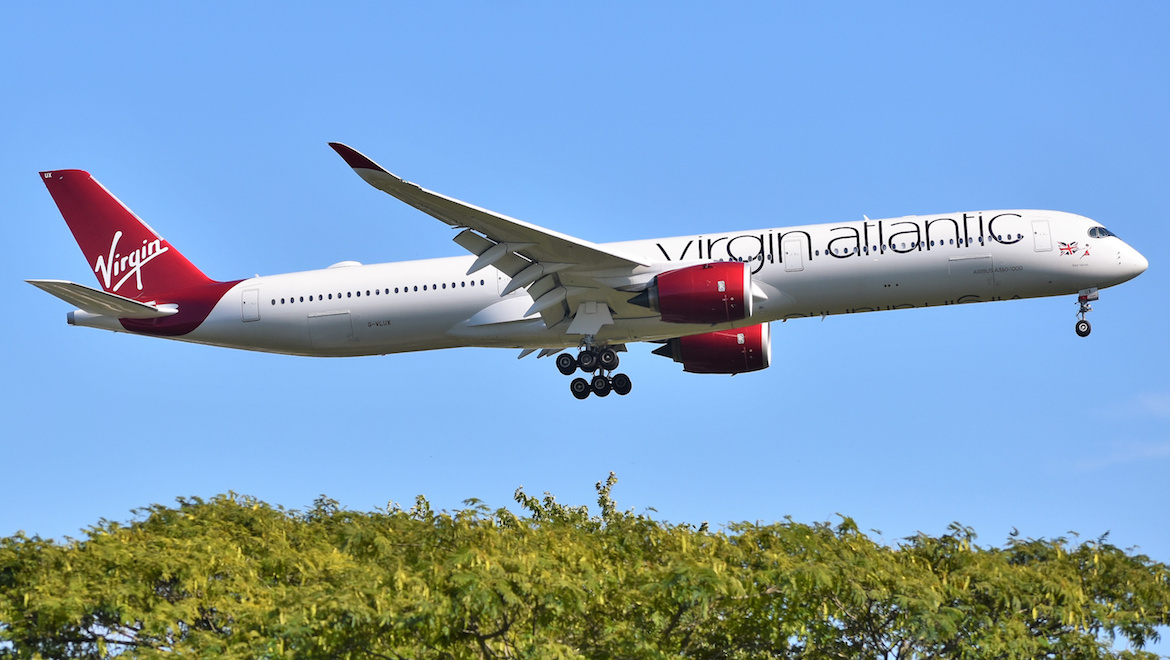
Sir Richard Branson has backed out of a deal to sell a 31 per cent stake in Virgin Atlantic to Air France-KLM that was struck in 2017.
While the transaction was now off the table, Sir Richard said in a letter to staff posted on the Virgin Group website Virgin Atlantic would still proceed with a trans-Atlantic joint-venture alliance involving Delta Air Lines and Air France-KLM.
Sir Richard said Air France-KLM had agreed to amend the terms of the contract that would ensure he would retain a majority stake in Virgin Atlantic.
“We have agreed (subject to contract) with our new joint-venture partners, that our family will continue to hold the 51 per cent of Virgin Atlantic shares we own,” Sir Richard said on Monday (UK time).
“We’ll also continue to work extremely closely with our partners investing together in a thriving airline and holiday company.
“This will benefit you all, the wonderful people of Virgin Atlantic and Virgin Holidays, and contribute to a winning partnership.
“The expanded joint venture with Delta and Air France-KLM remains an essential part of our future and long-term success.”
Currently, Sir Richard’s United Kingdom-based Virgin Group owned 51 per cent of Virgin Atlantic, with Delta Air Lines holding the remaining 49 per cent. The pair operates a joint-venture alliance on flights between the United Kingdom and the United States.
In 2017, Virgin Atlantic announced plans to join an expanded trans-Atlantic joint-venture that included Delta Air Lines and Air France-KLM. That proposed tie-up received the green light from regulators in November.
Further, it was also announced at the time that Air France-KLM would acquire a 31 per cent stake in Virgin Atlantic currently held by Virgin Group for £220 million. That would leave Virgin Group with a 20 per cent stake in Virgin Atlantic, as well as the right to appoint the chairman of the airline.
Sir Richard’s letter to staff said that he initially thought at the time “our family would need to reduce its shareholding in Virgin Atlantic” to get the deal done.
“I was willing to do so, reluctantly, to guarantee the long-term success of Virgin Atlantic,” Sir Richard said.
However, that view has now changed.
While Virgin Atlantic had reported losses of late, Sir Richard’s letter was upbeat about the future prospects for the airline.
It noted the recent arrival of factory-fresh Airbus A350s into the fleet, as well as new orders for the A330neo, expansion of the airline’s route network through new service to Tel Aviv and a return to Mumbai, and growth at its Manchester Airport hub.
Virgin Atlantic was also part of the Connect Airways consortium that recently purchased United Kingdom-based regional carrier Flybe, which was being rebranded as Virgin Connect.
Further, Virgin Atlantic had laid out a growth strategy based on the building of a third runway at London Heathrow that it has called a “Two Flag Carriers” campaign.
“As we enter 2020, the 50th birthday year for the Virgin Group, there is more excitement ahead,” Sir Richard said.





